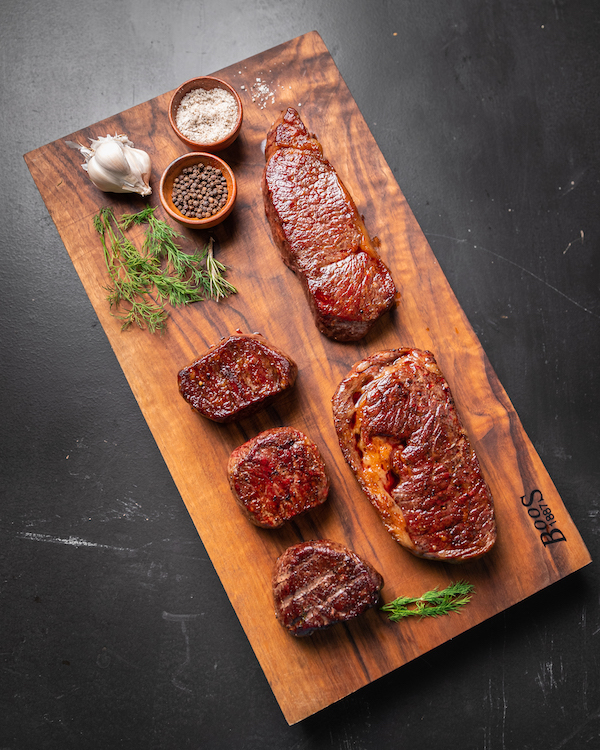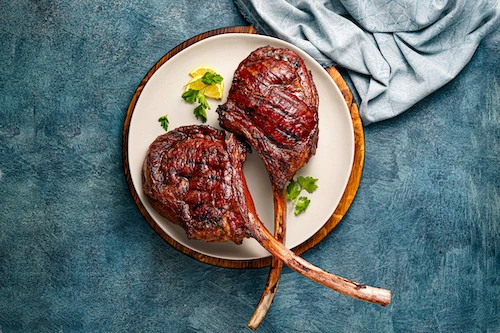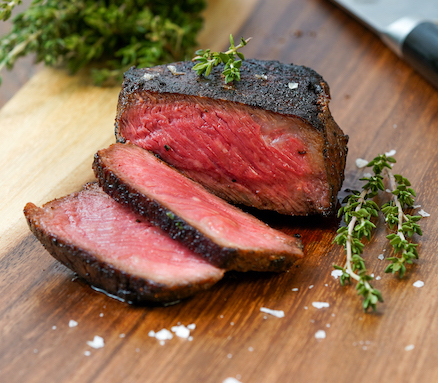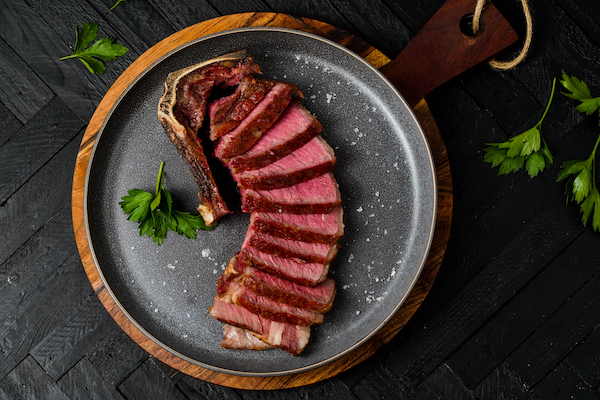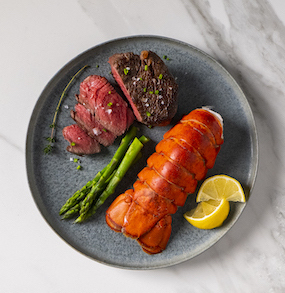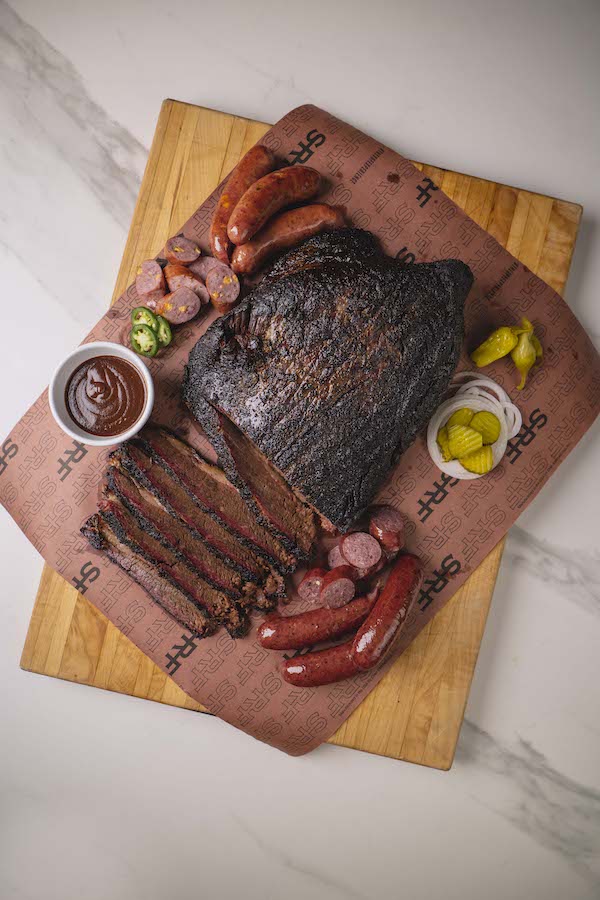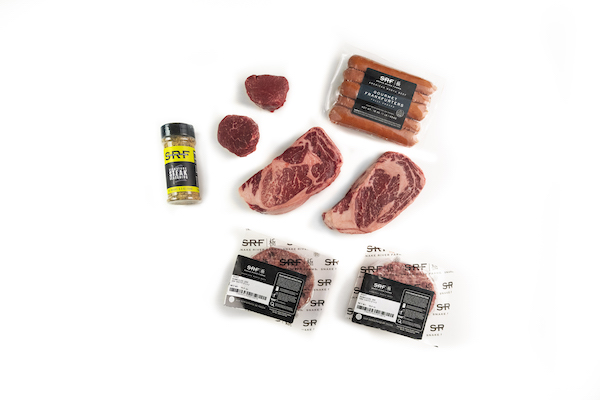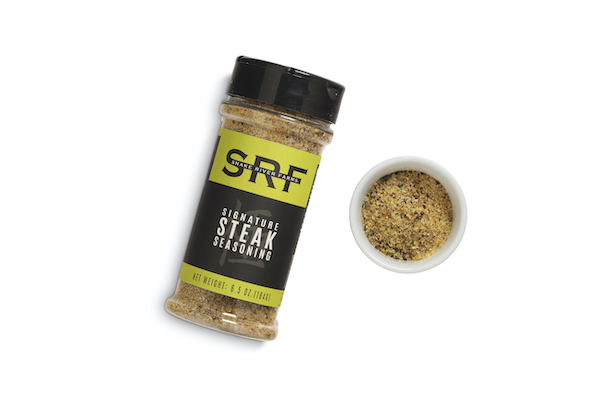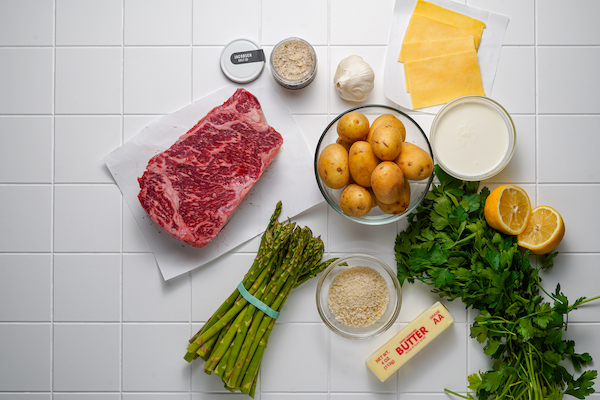A Matter of Respect - The Focus on Animal Well-Being at Snake River Farms
Good Nutrition: Grass vs. Grains
We’ve all heard the marketing claim that 100% grass-fed beef is better. But the truth is that a single-ingredient diet does not provide the wide range of nutrients cattle need to achieve and sustain optimal health.
Snake River Farms cattle are raised on ranches, grazing grass across the Northwest as they’re growing up until they reach weight of about 450 to 700 pounds. But the difficult truth is this: Cattle that are fed nothing but grass their entire lives produce beef that does not taste fabulous. That’s one of the reasons we worked hard to gain control over the entire ranch to table process, from genetic conception to delivery at your door.
For the rest of their 500-day lifecycle, our American Wagyu cattle consume a very carefully monitored diet of locally sourced forages, grains, potato byproducts and our proprietary mineral and supplement ration called PerforMix. Our team of PhD livestock nutritionists tweak each animal’s ration based on their age and days on feed, with a starter, grower and finish ration formula to match their changing needs.
The Pacific Northwest region, where our feedlots and ranches are mainly located, is rich in crops like wheat, potatoes, corn and hay. We source the ingredients for our rations from our farming neighbors, so it contains a rich combination of nutrients that may help keep our cattle healthier. Plus, sourcing locally keeps our overall carbon footprint low while contributing to the success of our entire community — and providing value to feed byproducts.
Antibiotics and Hormones: Treatment vs. Supplements
Healthy cattle are the foundation of American Wagyu quality. That’s why our four fundamental principles prioritize their well-being with our S.T.A.R. commitment to:
• Sustainability Practices
• Total Quality
• Animal Well-Being
• Responsibility to our Employees, Partners and Customers
Because our animals are key to our entire operation, we are continuously tweaking their care. We build breeding relationships that last generations. Our feedyards are Beef Quality Assurance certified and abide by proper management techniques with a commitment to safety and quality. We’re never satisfied with the status quo.
As always, Snake River Farms does things differently than the conventional cattle industry. We do not use any growth-promoting hormones, as we understand that Wagyu cattle naturally produce superior marbling on a slower schedule. By feeding our cattle nutrient-rich feed over the course of 500 days, for example, we allow them to naturally develop intramuscular fat through their Wagyu genetics that yields buttery texture and robust flavor. It takes time and patience, just like aging fine wine, but it’s worth it.
We also look at antibiotics the way you do for your kids. You don’t feed your child antibiotics every day as a way of avoiding illness. However, when your kid develops a fever or rash and the doctor prescribes medication, you fill the prescription and follow the doctor’s orders. We adhere to the same logic. If any of our cattle get sick, we remove them from the herd, follow treatment protocols that veterinarians help write and monitor, then send them back to their home pen to reduce stress and allow them to get back into their normal environment that they’re used to. We never ship cattle to our processing facility until they’ve cleared the withdrawal date.
Finally, our Toppenish, Washington, Safe Quality Food (SQF) certified facility was built according to designs by famed animal behaviorists Dr. Temple Grandin and Bud Williams for the calmest experience from the cattle’s point of view.
We know the health of our animals is the bedrock of our success. We’re committed to protecting and maintaining their well-being from genetic conception to humane processing. That kind of seamless integration makes all the difference in the quality you experience in Snake River Farms beef.
Sustainability: Thinking Globally and Acting Locally
Sourcing our cattle feed from our farming neighbors is just one of the ways Snake River Farms focuses on local sustainability for a better planet. We also recycle our cattle waste into nutrient-rich compost to share with those farmers for true reciprocity that greatly reduces our waste runoff.
On partner ranches, cattle are sometimes rotated through pastures as part of a sustainable rotational grazing program. Some of our partners also use mountain terrain that could otherwise not be used in farming to graze cattle. This gives us the valuable opportunity of turning a forage that we cannot digest as humans into a high-quality and flavorful meat product. Additionally, we now capture 20% of our biogas to lower the operational cost of our Toppenish, Washington harvesting facility and decrease our overall footprint.
We see ourselves as more than producers of exceptional American Wagyu beef. We’re stewards of the land, animals and people that make our success — and the success of future generations of ranchers and beef lovers — possible.


